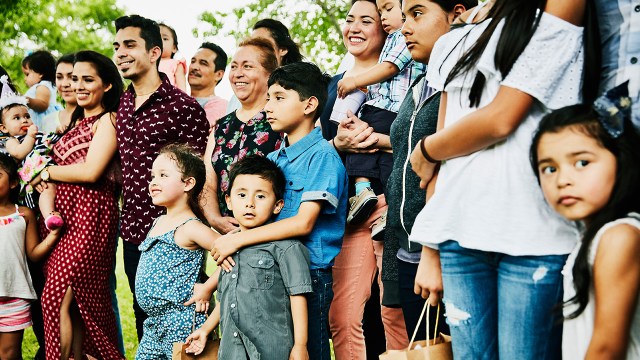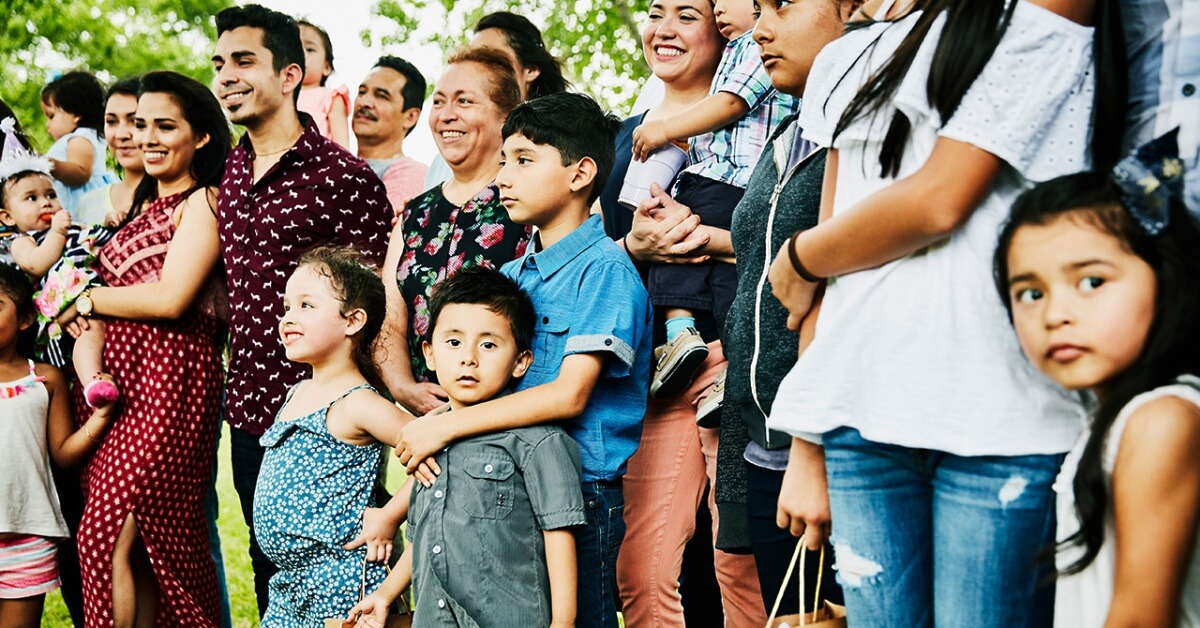
Pew Research Center conducted this study to understand the views of Hispanics living in the 50 states and the District of Columbia about life in the United States compared with the origin places of their Hispanic ancestors (including Puerto Rico) on a number of dimensions; and whether Hispanics born in Puerto Rico or another country would choose to come to the U.S. again.
For this analysis we surveyed 3,375 U.S. Hispanic adults in March 2021. This includes 1,900 Hispanic adults on Pew Research Center’s American Trends Panel (ATP) and 1,475 Hispanic adults on Ipsos’ KnowledgePanel. Respondents on both panels are recruited through national, random sampling of residential addresses. Recruiting panelists by phone or mail ensures that nearly all U.S. adults have a chance of selection. This gives us confidence that any sample can represent the whole population (see our Methods 101 explainer on random sampling), or in this case the whole U.S. Hispanic population.
To further ensure the survey reflects a balanced cross-section of the nation’s Hispanic adults, the data is weighted to match the U.S. Hispanic adult population by age, gender, education, nativity, Hispanic origin group and other categories. Read more about the ATP’s methodology. Here are the questions used for our survey of Hispanic adults, along with responses, and its methodology.
The terms Hispanic and Latino are used interchangeably in this report.
U.S. born refers to persons born in the 50 states or the District of Columbia and those born in other countries to parents of whom at least one was a U.S. citizen.
Born in Puerto Rico or another country refers to persons born in Puerto Rico or born outside of the United States to parents of whom neither was a U.S. citizen. Although individuals born in Puerto Rico are U.S. citizens by birth, they are grouped with those born in another country for the purposes of this report for a variety of reasons: They are born…






